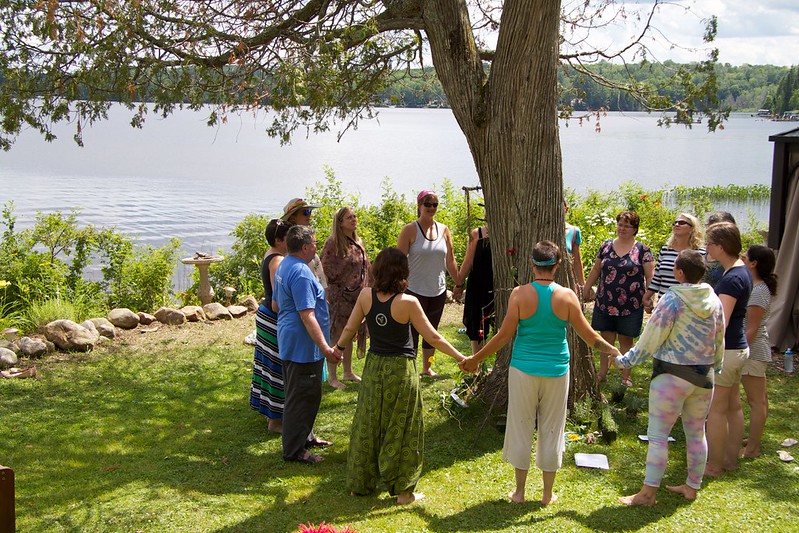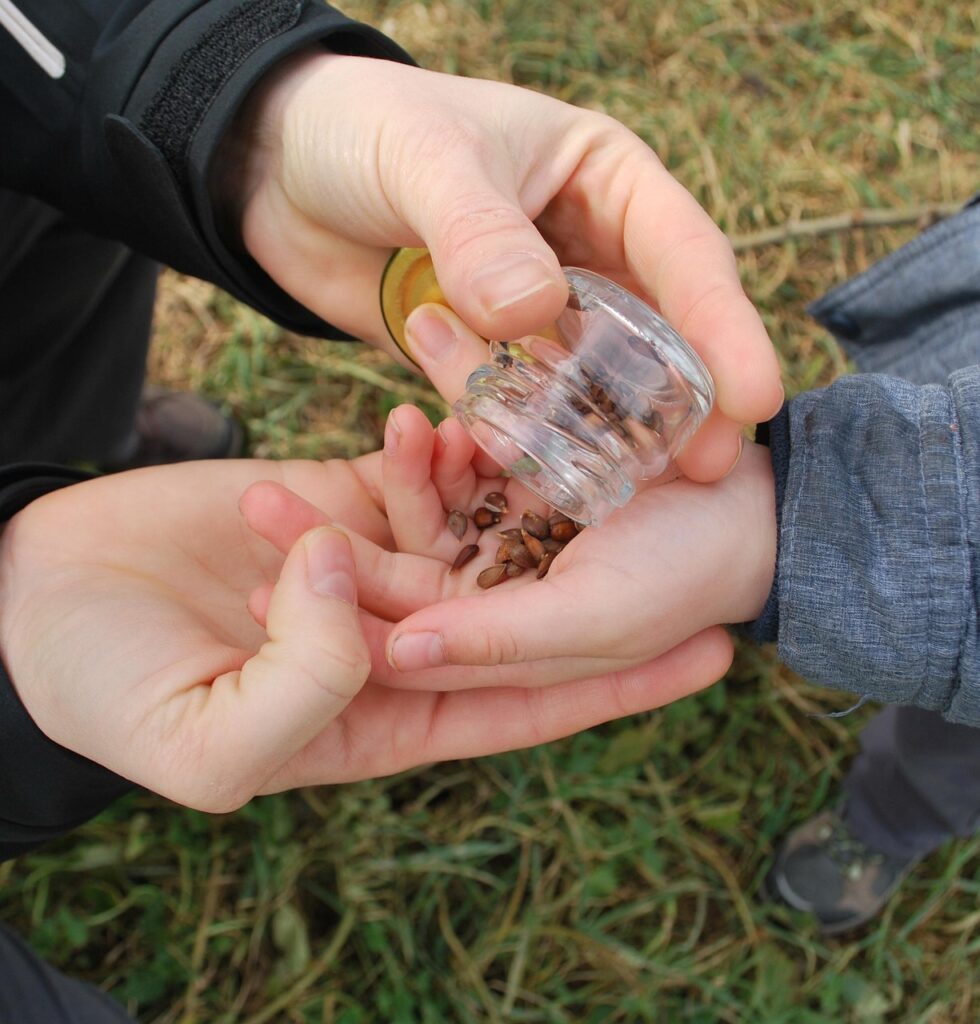
By Trae Robinson
For those who are new to the experience, the transition into quiet can feel unfamiliar, even uncomfortable. But within that discomfort is an invitation—to listen, to soften, and to BE rather than DO. As we grow more comfortable with stillness, we often find a renewed connection to our inner voice guiding us.
During registration at a Heart Wisdom retreat, we invite guests to share what they are looking for during a retreat. The words most frequently used are to slow down, relax, and unplug. For those who are accustomed to filling a space with sound, silence can be daunting, but it is exactly what can initiate the process of unwinding. Getting out in nature is the ideal way to begin. When we slow down, we get curious. We can engage with our senses and rediscover the things that we value. We can calm the nervous system and the mind chatter that drives us. Previous participants share how quiet periods help create room for growth.
Joanne says, “Having a journaling, yoga nidra, or creativity practice helps me with the quiet integration. I cannot always manage stillness. But if I’m drawing, gardening or journaling my mind is able to work through new learnings and unlearnings without my extrovert personality taking up all of my heart space.”
At our recent Heart Wisdom in the spring, we noticed we had attracted a group who relished quiet. It can be challenging to balance group energy but when we tuned in, many of these guests were happy to be sitting quietly in good company and tending their inner experience. Even our first meals together fell silent as we savoured the nourishing dishes.
Susan Cain, in her book Quiet, beautifully explores how the world often undervalues introversion and silence, and yet how essential these qualities are for creativity, deep connection, and inner peace. In many ways, our retreats are a lived expression of her insights. In a culture that prizes speed, noise, and productivity, choosing quiet is an act of courage and intention. It invites us into a different rhythm—one that honors stillness as a gateway to insight.
Jan says, “Quiet to me means stillness of body, mind and spirit. It is in the stillness that we hear our spirit and our unseen networks of support the clearest.”
Silence is not the absence of something, but the presence of something deeper. In the quiet, we start to notice the subtle things: the rustle of the wind, the warmth of sunlight on skin, our breath and even our heartbeat. These small, often overlooked details have the power to ground us. They offer a doorway into a more spacious awareness, where we can begin to see ourselves and our lives with greater clarity. At a recent retreat, Vicki used the word integration, to describe the purpose of quiet times.
Vicki explains, “It’s not just quiet, it is also integration time when I am learning something new, for example, and I reach my capacity for taking in information, I step away and see how it plays out in my life, for me this is embodied wisdom. When I have digested what feels relevant to me I can return again to go deeper.”
At a Heart Wisdom retreat, quiet is respected as part of connection and it arises naturally when people feel safe, held, and free to simply be. There’s a sacredness in shared silence—whether walking on the land, journaling beneath the trees, or sitting beside a new friend. We foster this natural ebb and flow with quiet self reflection including quiet zones, ceremony time, awareness of others and respecting quiet zones and times. In these moments, we often witness profound transformations. Without words, people can feel deeply seen and connected—not just to others, but to themselves.
Deanna notes, “Quiet for integration after a retreat is important, and so are quiet periods of time during the retreat. A quiet atmosphere in order to listen deeply within to hear and integrate all the pieces arising when participating in a group activity can be very helpful too.”
Quiet introspection is a practice that can come home with participants following a retreat and ease the re-engagement with our responsibilities and routines.
Arlene notes, “I am an introvert and need time alone to maintain or generate my energy. This is especially important after a Heart Wisdom Retreat. I find interacting with others very challenging. I feel it’s important to take the time I need to integrate my experiences and learnings. It allows me to fully appreciate all the blessings of the weekend.”
Sandra adds, “I did sometimes find integrating back into work life was jarring at first. But I learned to be much more gentle with myself and take the time to land. Colleagues noticed how much calmer and in tune I was.”

Grab our Guide: Connecting to your Heart’s Wisdom
Are you seeking to cultivate a deeper connection to your heart's wisdom? Grab our guide here. Stay subscribed for more heart-centred, nature-based practices to help nurture your connection.
A copy of our Wisdom in Nature Guide is on its way to your inbox.



